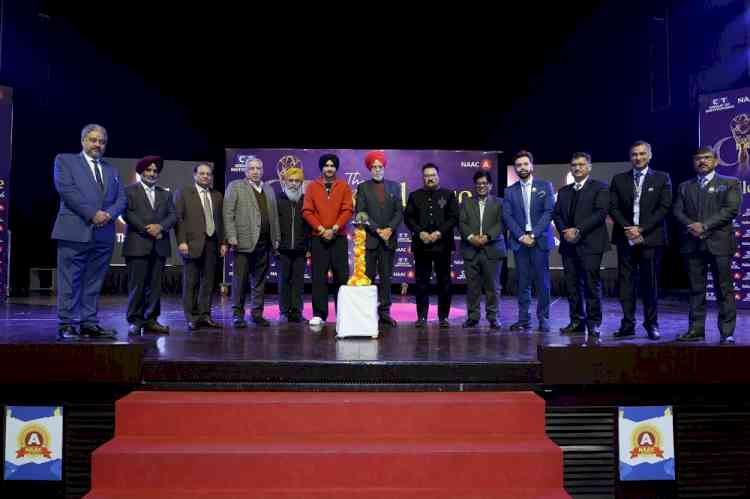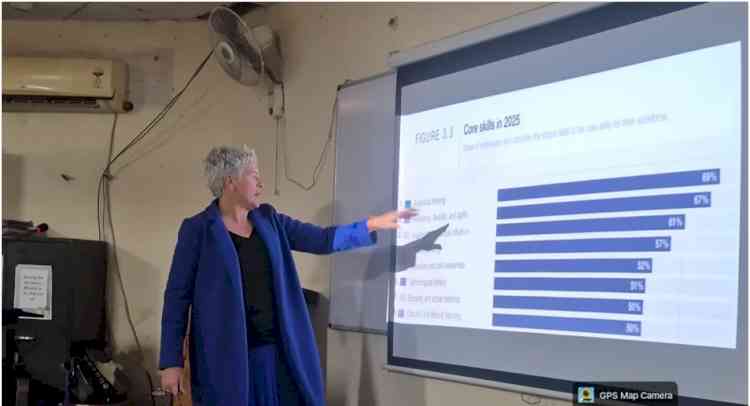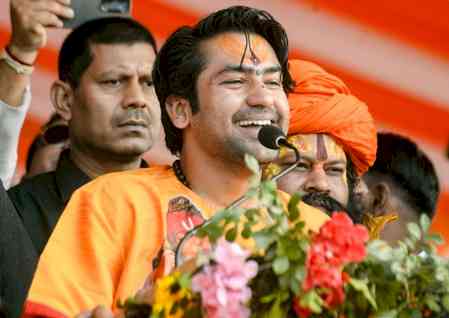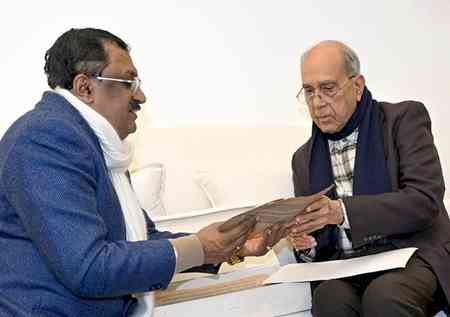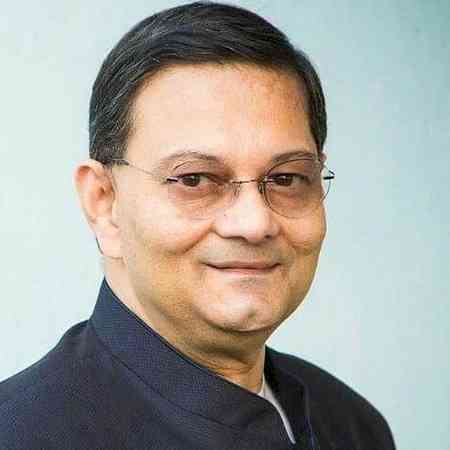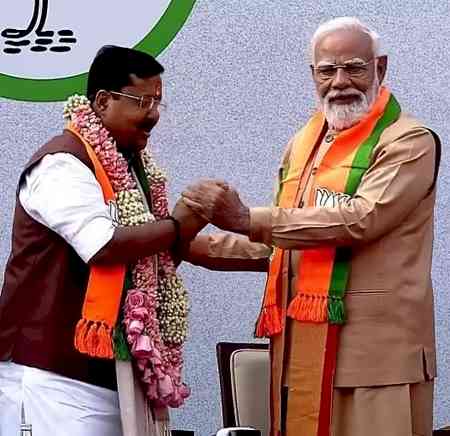PU Scientist to Present SEVEN Research Papers at 75th Annual Conference of American Academy in Orlando, Florida (USA)
Dr. J.S. Sehrawat, Assistant Professor, Department of Anthropology, Panjab University, Chandigarh, will present SEVEN research papers in the diverse fields of forensic sciences at 75th Annual Scientific Meeting of American Academy of Forensic Sciences (AAFS) to be held at Rosen Single Creek Convention Center, Orlando (Florida, USA) from 13th to 18th February, 2023.
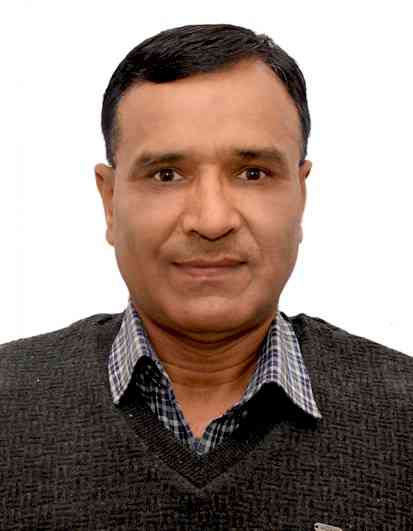
Chandigarh, February 11, 2023: Dr. J.S. Sehrawat, Assistant Professor, Department of Anthropology, Panjab University, Chandigarh, will present SEVEN research papers in the diverse fields of forensic sciences at 75th Annual Scientific Meeting of American Academy of Forensic Sciences (AAFS) to be held at Rosen Single Creek Convention Center, Orlando (Florida, USA) from 13th to 18th February, 2023. AAFS is the largest and most prestigious academy in the world in the field of forensic sciences. Considering his vast experiences and expertise in forensic identification of unknown human remains found in forensic contexts, he is already awarded with the permanent Membership of American Academy of Forensic Sciences in the Forensic Anthropology section. Out of seven papers, he is the first author in his own Four papers and in three other papers submitted by his PhD scholars, he is one of authors. Dr. Sehrawat claimed a significant achievement to his credit that he got an opportunity to present seven research papers in at AAFS Annual Scientific Meeting of Academy of Forensic Sciences where thousands of delegates from different countries will participate and deliberate their research. He will explore some scientific collaborations and networkings with the researchers from global universities and research institutions to boost up his future academic and research accomplishments. Earlier, Dr. Sehrawat has presented his research papers in England, New Orleans, Seattle, Baltimore, Toronto, Portugal, etc. Dr. Sehrawat has published large number of quality research papers in various international and national journals and has been awarded many times for his research achievements and contributions to the discipline of forensic sciences. Dr. Sehrawat will highlight the importance of amino acids like Aspartic Acid racemization in the most accurate and reliable age estimations in forensic sciences, trends in forensic anthropological research work in India during last few decades, humanitarian forensics in the era of conflicts and pandemic, and critical appraisal of standardization and integration of forensic anthropological techniques.
Dr. Sehrawat is working for forensic identification of thousands of unknown human skeletal remains and personal artefacts exhumed from an abandoned well at Ajnala (Amritsar, India) and SERB-DST has funded this project of national historical importance. The human remains reportedly belong to 282 Indian sepoys killed by the Britishers during India’s first freedom struggle in 1857. Thousands of unknown human skeletal remains along with contextual items of identity unearthed from a well situated underneath a religious structure were handed over to Dr. Sehrawat for establishing their biological identity. Dr. Sehrawat has carried out fantastic research work in the field of forensic anthropology, with the application of advanced scientific techniques like Ancient DNA analysis, Radiocarbon dating and Stable isotope analysis. Dr. Sehrawat has research collaborations with Newfoundland University, Canada, Max Planck Institute, Germany, BSIP, Lucknow, IIT Roorkee and University of Oklahoma (USA) for the identification pursuits of these unknown human remains belonging to 26th Native Bengal Infantry regiment of British-Indian army. Forensic experts of diverse sub-disciplines from all across the world will exchange their research findings and practical forensic experiences at this international conference of very high repute.
In his FIRST scientific presentations, Dr. Sehrawat will elaborate the forensic provenance of Ajnala skeletal remains from the strontium isotope analysis of their teeth samples. Comparative analysis of strontium isotopic concentrations revealed that most Ajnala individuals have isotopic signatures close to the Indo-Gangatic plain, and the individuals with higher Sr values probably resided in the Bihar, coastal Orissa, West Bengal and some norteastern Indian states. These observations endorsed the written historical records that the Ajnala victims were recruited in 26th Native Bengal Infantry battalion were recruited from Eastern Uttar Pradesh (Awadh), Bengal, Bihar, coastal Orissa and some northeast states of India. Dr. Sehrawat claimed that his scientific group is very close to conclude the biological identity of the Ajnala skeletal remains; though he declined to divulge further details citing the ethical restrictions before the presentation or publication of the findings. In his SECOND scientific presentation (Proteomics profiling from skeletal remains for forensic time-since-death estimations: A Systematic Review and future probabilities), Dr. Sehrawat will highlight the crucial role of proteomics/protein biomarkers in estimating time since death or postmortem interval (PMI) of unknown human remains found in forensic anthropological contexts. Dr. Sehrawat will explain how the application of degraded proteins products is helping forensic experts in time since death estimations of unknown human remains like Ajnala skeletal remains. Dr. Sehrawat has collaborated with Yenepoya Medical College and Hospital, Mangalore for this study. In his THIRD scientific presentation, he will present meta-analysis results highlighting significance of facial soft-tissue thickness in forensic craniofacial reconstruction and facial approximations of lifelike features onto the unknown skulls retrieved from forensic or bioarchaeological contexts.


 City Air News
City Air News 
